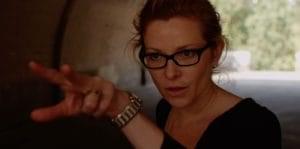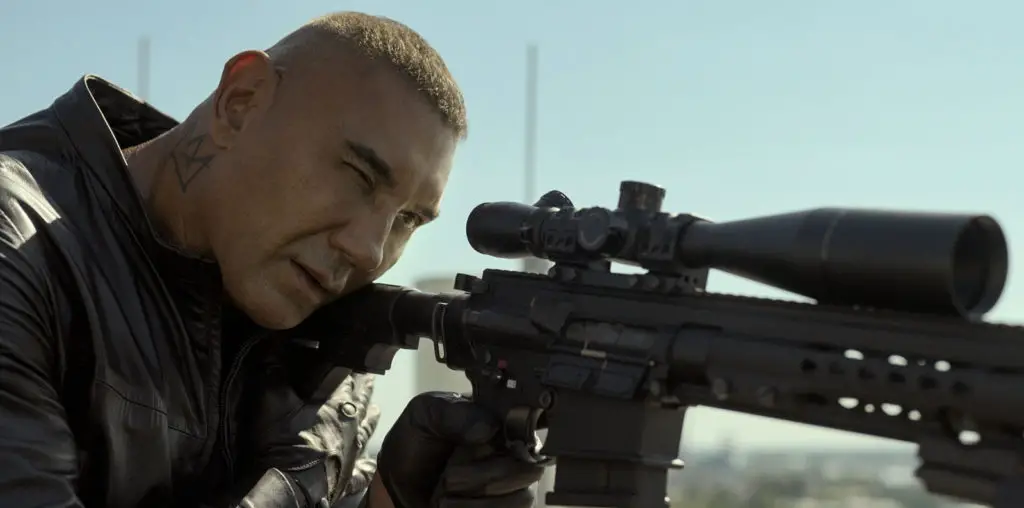
The topic of the role of women in entertainment remains relevant in today’s ever-changing news cycle. While it is always important to shed light on incidences of harassment and discrimination, it is equally important to focus on real solutions and move quickly toward an even playing field. Is Hollywood heading in the right direction? Is progress moving fast enough? Clearly, the answer is no. But what will it take to get there?

On March 19, Emmy® Award-Winner Cady McClain brought her documentary, Seeing is Believing: Women Direct to the Women in Creative Leadership event at Pepperdine University’s Graziadio Business School. Cady was joined by several prominent women directors including Bethany Rooney (NCIS, Criminal Minds), Lizzie Borden (Born in Flames, Working Girl), Finola Hughes (The Bet, General Hospital), Carla Garapedian (Screamers) and Pepperdine faculty Dr. Bernice Ledbetter and Dr. John G. Mooney.
Dr. Ledbetter opened the screening with the film’s simple mission statement about role models. “When young women see other women doing something that they aspire to do, they are much more likely to pursue that career. If they do not see a woman performing a task, or a role, or a position that they aspire to, they may not move themselves in that direction.”
McClain’s documentary Seeing is Believing: Women Direct tackles issues of women in leadership head-on, specifically in the area of directing in film and television. While speaking to veteran directors like Lesli Linka Glatter (Homeland), Sarah Gavron (Suffragette), Li Lu (There’s a New World Somewhere) and Naima Ramos Chapman (And Nothing Happened), the documentary is a call to women with stories to tell, to tell their stories.

“…what he was so afraid of from women and he said that they’ll laugh at him. What women are afraid of is…”
We are at a time now, where the door of opportunity is open. Although not wide enough, the door is open none-the-less. While the statistics in the film industry remains pretty sad at four percent of major films directed by women, the numbers in television are better. In 2016, the number of woman directors in series television has grown from 16 to 23 percent. Encouraging, but still far off the mark.
Is equality achievable? A level playing field starts with women challenging the voices of those who tell them they can’t do it. Ignore those voices and pursue the art of directing. And like any craft, it takes hundreds, if not thousands, of hours and hours of experience to hone. Finally, those who have blazed the trail before must reach out and mentor the next generation of storytellers. Signs point to the fact that these trailblazers want to help.
The night’s panel discussion varied between the actual nuts and bolts of directing film and television and the specific challenges women face on the job and rising through the ranks.
Actress/director Finola Hughes shared her first experiences as a director. “I asked a man what he was so afraid of from women and he said that they’ll laugh at him. What women are afraid of is that they’ll kill us.” And then spoke of a writer, who used subtle physical intimidation to show his displeasure with a directorial decision she made, while minutes later helping one of her actors find the right emotional place using a technique she learned from her experience as an actress.

“…it’s really, really hard. But at the same time, if you love it…and you feel great joy…”
Carla Garpedian spoke about being the only woman on her small crew filming the civil conflict in Chechnya and how her attempts at relating to their Chechnyan guide, and soon-to-be kidnapper, literally saved their lives.
But in the end, to be a director, you have to be able to direct. Everyone agreed that directing is hard work and no one is going to give you the keys to a film or television show because you are a woman asking for an opportunity. There are a special set of skills a person needs to tell a story, appease studio expectations and budgets, and manage a large crew of egos that every director needs to have, regardless of gender.
McClain ended the panel, “So yes, it’s really, really hard. But at the same time, if you love it…and you feel great joy…you have to hang on those moments of joy…And you have to do it, and you have to not quit.” “And you can absolutely do it,” Bethany Rooney interjects.
Go to SeeingIsBelievingWomenDirect.com for more information about Seeing is Believing: Women Direct and future screenings. The documentary is available in three different lengths for educational, festival, and theatrical situations.

